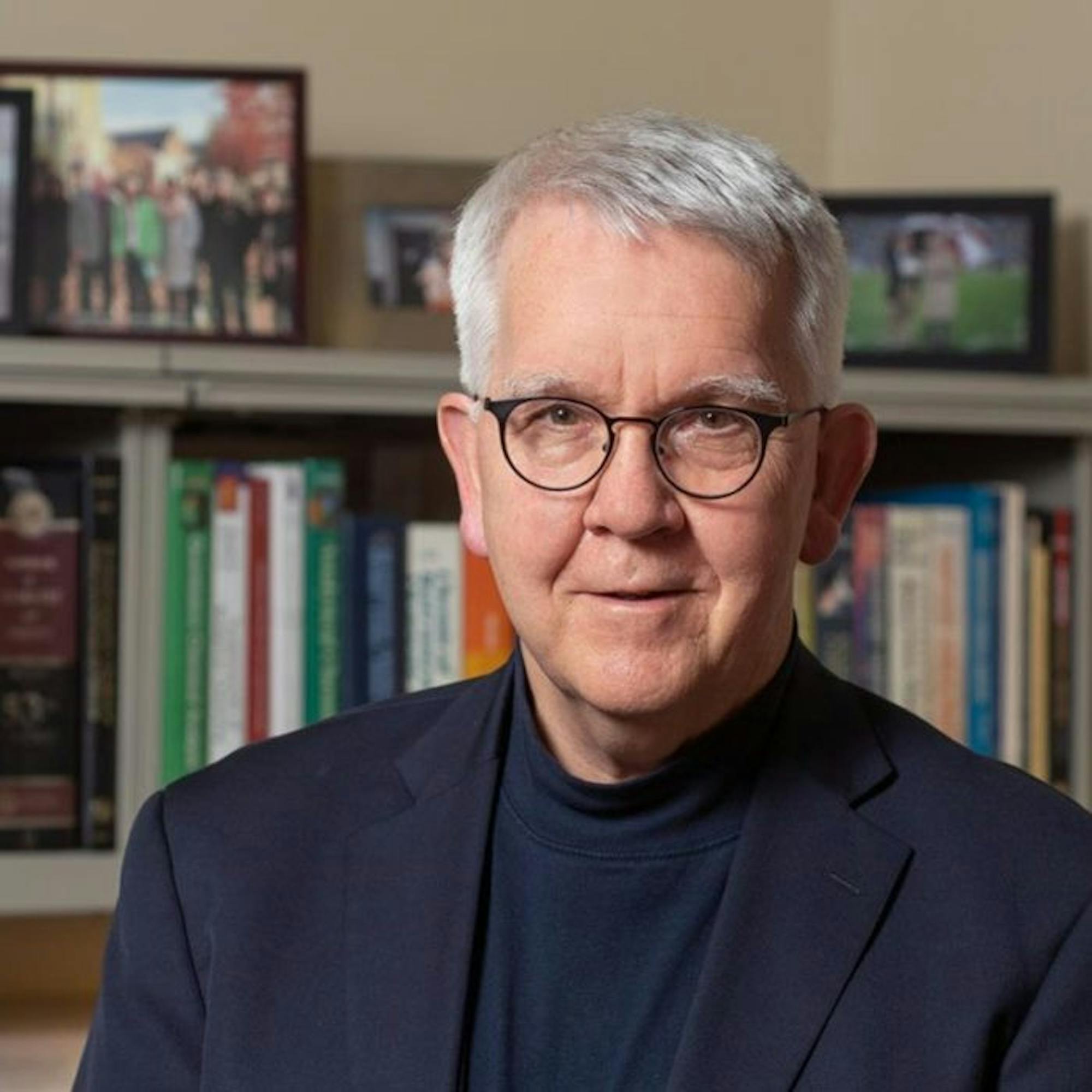Each year, the Society for Electroanalytical Chemistry presents the Charles N. Reilley Award to a scientist who has made “significant contributions to electroanalytical chemistry.” The 2022 Reilley Award recently went to Paul Bohn, Arthur J. Schmitt professor of chemical and biomolecular engineering and professor of chemistry and biochemistry at Notre Dame.
Bohn said it was not bad for someone who had “wandered into the field.”
“I’m not trained in electrochemistry; I’ve never had a class, I’ve never studied with anyone,” Bohn said. “I never expected to be recognized with an award like this.”
Bohn obtained his Bachelor of Science degree from Notre Dame and his doctoral degree from the University of Wisconsin-Madison, both of which were in chemistry. He initially worked in the field of optical spectroscopy, a process of studying properties of light to characterize the contents of chemical systems.
While teaching at the University of Illinois at Urbana-Champaign, Bohn said, a postdoctoral assistant convinced him to try experimenting with electrochemistry, a vastly different area of chemistry that studies the role of electricity in chemical reactions.
Bohn said his inexperience in the field led to work that he called “very heterodox” at first but which was ultimately very successful.
“They were very unusual experiments, but they got people’s attention, and we got a lot of notoriety,” Bohn said. “That kind of launched us into asking questions other electrochemists wouldn’t necessarily ask.”
Twenty years later, Bohn continues to do noteworthy work in the field of electrochemistry. He received the Reilley Award primarily due to achievements at the intersection of nanoscience and electrochemistry. This work involves building tiny chemical structures to perform experiments at a microscopic level. Such work is measured in units of nanoliters — too small for the naked human eye to view.
“The end of your thumb is about a milliliter,” Bohn said. “If you take that volume and you take a millionth of it, and then you take a millionth of it again, you have a nanoliter and those are the volumes that we work with.”
Bohn’s self-described research “hobby” is correlated imaging, a technique that allows scientists to view how bacteria and other microbes communicate with each other chemically. This work harnesses his background in optical spectroscopy and combines it with his acquired interest in electrochemistry.
Outside of his own research, Bohn serves as director of the Institute for Precision Health at Notre Dame. This initiative conducts molecular and cellular research with the aim of creating tools to prevent and treat diseases. Current research themes include molecular mining, molecular recognition and micro and nano-scale instrumentation, among others.
Moving forward, Bohn said he hopes to combine some of his different interests and research projects. He said he believes synthesizing the findings in his diverse experiments may facilitate further breakthroughs in the field of electrochemistry.
While Bohn will continue to be active in the research community, he said for him “it’s all about the students.”
“There is literally no better job in the world than walking into the office — or out of my bedroom, now, in the pandemic — and being able to take what’s between your two ears, and utilize that to excite students about doing science and helping them learn how to do science, and then taking the results of those experiments that they did, and helping educate the rest of the world,” Bohn said. “It starts with the students and everything revolves around them.”
To students hoping to have a career like his, whether it be in science or otherwise, Bohn advises to leverage the things they already enjoy doing for fun.
“Try to find something that, as a friend of mine once said a long time ago, allows you to do the things that you’d be doing in your basement anyway,” Bohn said. “If you forget that you’re working, it’s the right career for you.”
Notre Dame professor wins prestigious chemistry award
Courtesy of Paul Bohn
Notre Dame professor of chemical and biomolecular engineering and chemistry and biochemistry Paul Bohn recently won the Charles N. Reilley Award for his work in electrochemistry, a field he said he “wandered“ into.









